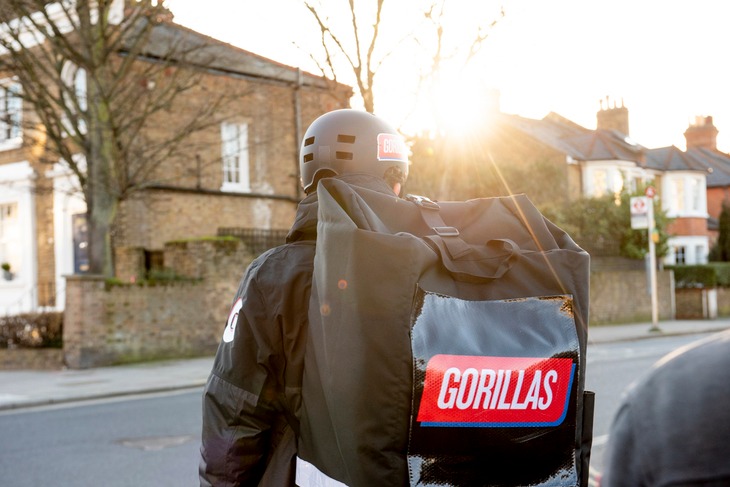There has been a lot of talk about “unicorns” in the start-up industry and a shift in the market brought on by the COVID-19 pandemic. New companies are popping up globally to help society adapt to a world of lockdowns, stay-at-home orders, and social distancing. Some of these new innovative start-ups have deigned “unicorns,” such as the German “unicorn” Gorillas.
The Gorillas food delivery app has popped up seemingly overnight and stretched itself across Europe, becoming the new start-up sensation. However, there is a fundamental problem with “unicorns” – unicorns do not exist.
Gorillas’ founder, Kağan Sümer, is building his operations by relying on a business model that focuses on rapid expansion and cheap human labour, but is neglecting to build a sustainable infrastructure or technology to support this expansion in the long-term. Will this misguided company expansion lead to continued success or is this “unicorn” just a temporary illusion?
Lack of Long-Term Vision
Gorillas focuses solely on expansion by relying on human capital and numerous dark stores, – a strategy that has crushed many businesses before them. Human labour is both faster to scale and more adaptable to new environments. However, the increased speed, efficiency, and long-term cost-saving provided by automation far outweighs the burdens of its initial investment. Automation is indisputably the name of the game.
Gorillas has also failed to implement much needed infrastructure and technology to manage the turnover and maintenance of the stock inside of their dark stores. Damaged, expired, and out-of-stock products must be replaced quickly.
Grocery orders are considered the most complex in online shopping and out-of-stock situations will arise if Gorillas inventory planning, forecasting and replenishment systems are not integrated with online order systems and customer demand. Failure to integrate leads to substitutions or missed items altogether, resulting in customer dissatisfaction and ultimately abandonment.
Gorillas’ expansion and lack of supporting technology and infrastructure will leave them unable to keep up with supply and demand, especially compared to their competitors’ more clear-cut founder-market-fit.
Not in my Backyard?
Gorillas can include real estate issues to its list of potential problems. Location is critical for all dark stores, which must be centrally located within their delivery zones in order to reach their customers easily. In addition, the size of a dark store will determine how many products it can carry.
The number of products a customer will have access to will depend on what dark store happens to be in their delivery zone. As consistency and accessibility is compromised customer satisfaction is directly affected. Unfortunately, Gorillas is unable to ensure that each dark store will be uniform in size and consistent with the number of products it carries.
Meanwhile, centrally located dark stores require very costly real estate and are increasingly unwelcome in the communities where they are located. Consumers want to be able to order the same products in a consistent and timely manner; while at the same time, they do not want to be disturbed or have their neighbourhoods affected by noise levels and other distressing factors. And yet, Gorillas is marching onwards so aggressively that it has foregone complying with local regulations.
Gorillas has failed to account for this, as well as for problems in the logistics pipeline, ultimately affecting their delivery capabilities. Gorillas aims to replace the need for in person shopping altogether, but they will face serious challenges if they fail to adapt to the post-Covid era.
We Are Family?
Many of the issues above start with Gorillas’ founder Kağan Sümer. The eccentric entrepreneur, who refers to Gorillas employees as a family, is seemingly unbothered by the rising issues within his unicorn. Employees refer to Sümer’s statement “family values” as a joke, and a choir of disgruntled voices have recently addressed how Sümer runs Gorillas as a kingdom.
All employees work to serve and benefit him and only him, with promised bonuses that never come, slashed benefits, worsening conditions, turning a blind eye to COVID-19 regulations, and exposing employees to a number of other safety risks, the Gorillas family seems to be a highly dysfunctional one.
Thinking of Adam Neumann’s creation WeWork, history has taught us all how something seemingly unbreakable can rise quickly only to crash and burn under the leadership of someone who lacks the necessary insights to scale sustainably. The concept of speedy food deliveries is here to stay, but the model Gorillas is using is not.
Kağan Sümer’s failure to invest in technology and innovation, his lack of a viable long-term business plan, and his treatment of employees as expendable, combined with his insistence on pre-mature scaling, will result in the demise of his beloved Gorillas app.
This is a Contributor Post. Opinions expressed here are opinions of the Contributor. Influencive does not endorse or review brands mentioned; does not and cannot investigate relationships with brands, products, and people mentioned and is up to the Contributor to disclose. Contributors, amongst other accounts and articles may be professional fee-based.

